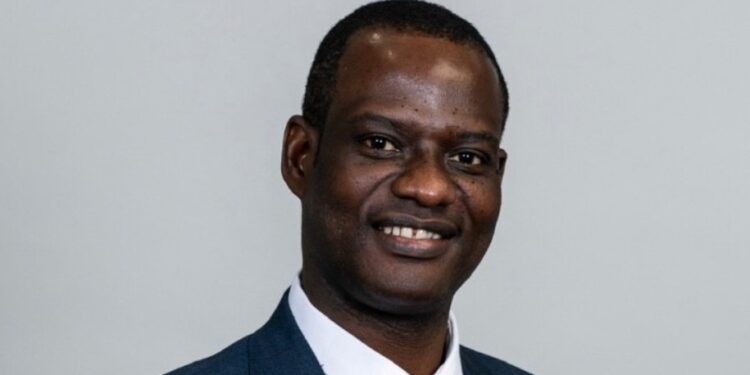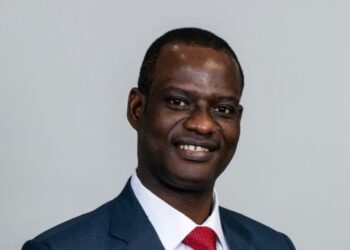The Chairman of the Presidential Committee on Fiscal Policy and Tax Reforms, Taiwo Oyedele, has said that about 81% of Nigerians in the employment pool are not in any productive sector of the economy.
Oyedele, who was speaking on Thursday at an Africa Trade and Investment Summit, said that while the unemployment rate in Nigeria is relatively low at 4.2%, most employed Nigerians do not add any meaningful value to the economy.
According to him, Nigeria has the same unemployment rate with the United Kingdom. Meanwhile, Nigeria still has over 113 million people living in multidimensional poverty.
He said,
- “About 81% of people in employment in Nigeria are engaged in a non-productive sector of the economy. They are doing things that do not add value in the real sense of the world.
- “That is the reason why our unemployment rate even though is just 4.2%, similar to that of UK, our poverty rate is still one of the highest in the world. We have over 113 million people living in poverty as of 2022 and it is most likely to have increased because that was before subsidy removal and naira floatation.
- “So how is it that you have high employment rate and you also have one of the highest poverty rate? That is the only explanation. We have working poor. We need to create decent jobs. Our job is just beginning.”
Speaking on the economic challenges of the country, Oyedele emphasized that the government is confronted with macroeconomic issues that are triggered, in part, by politics as well as the policy environment of the country.
He added that while Nigeria cannot control the global economic climate, a change in policy direction can help manage the economic situation of the country.
- “While we cannot control what Russia and Ukraine is doing. We cannot control what happens in the Gaza. Just making it easy for small businesses to earn a meaningful living, it is easier for manufacturers to produce.
- We make it easy for international investors to find Nigeria attractive enough such that the risk adjusted returns is competitive. That is where the presidential fiscal policy committee comes in to play a major role in this whole picture of policy environment,” he added.
According to Oyedele, the presidential committee has three major mandates which are organization and coordination of monetary, fiscal and trade policies.
What you should know
- According to the National Bureau of Statistics, Nigeria unemployment rate stands at 4.2% nationwide.
- This is according to the National Bureau of Statistics (NBS) Labour Force report for the Q2, 2023.
- The report, however, noted that 88% of employed Nigerians are self-employed while the other 12.0% are employees in Q2, making Nigeria one of the countries with the highest self-employed professionals in the world.
- Meanwhile, there have been backlash on the methodology used in calculating the unemployment rate in the country, as many believed that that figure does not represent the economic reality in the country.
- According to NBS, workers who work for only few hours and in low-productive jobs are still regarded as part of the employment pool in the country.
- Reacting to criticism of the methodology, employed individuals are those who have worked for pay or profit for at least one hour in the last seven days, as opposed to the previous criteria of 40 hours.
























The cause of poverty in Nigeria is non payment of correct wages. Employers are paying too low wages and salaries particularly government. And private sector is following the example of government. Army recruits and police constables are paid about #50000 naira monthly. Are we saying our police constables and soldiers and other junior and senior government officials are not engaged in productive sector of our economy? With minimum wage of #30000, how can we eradicate poverty?
Government should set standard of correct renumeration to reduce poverty in Nigeria. Government officials from the lowest ranks must be paid adequate wages that will lift them out of poverty. The private sector will follow and the multiplier effect will boost our economy.
The root cause of poverty in Nigeria can be attributed to inadequate remuneration. Employers, particularly those in the government sector, are paying wages that fall far below the appropriate and necessary level. Even private companies have started following this trend, further exacerbating the issue. It is alarming to note that army recruits and police constables are only receiving a monthly salary of approximately #50000 naira. This begs the question: Are these public servants not contributing significantly to our national economy? With minimum wage set at just #30000, it seems nearly impossible to eradicate poverty in Nigeria.
To combat this problem effectively, it is imperative for the government to establish a standard for proper compensation. The lowest-ranking officials must receive adequate salaries that lift them out of their impoverished state. Once this has been achieved within government institutions, we can expect private enterprises to follow suit as well – ultimately resulting in an overall positive impact on our economy through the multiplier effect.
Nigerians just love to pull numbers out of their backsides…smh